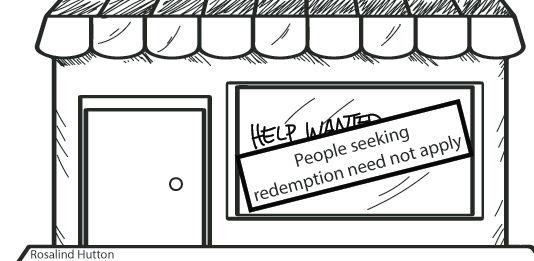In light of the disgusting conditions the prisoners at the Mississippi State Penitentiary, also known as the Parchman Farm, have had to live in, I believe it is time to discuss how our society treats both prisoners and ex-convicts. While I firmly believe in justice and doing the time for your crime, we have lost sight of the true purpose of prisons and commonly forget prisoners are human beings, not the violent animals they are being treated as.
According to StoptheACA.org, prisons are supposed to have four major purposes: retribution, incapacitation, deterrence and rehabilitation. Retribution refers to the removal of criminals from society to pay for their crimes, and incapacitation refers to removing criminals so they may not harm other innocent people. Deterrence refers to dissuading future crime, and rehabilitation means to offer these prisoners the chance to learn from their mistakes while imprisoned with programs and activities which hope to produce law-abiding citizens and psychologically healthier individuals.
However, over the years, many prisons have become a source of harsh punishment and cheap labor. The idea of rehabilitation has become a memory of the past. Prisoners face psychological and physical abuse nearly every day, often caused by the degrading and abusive treatment of inmates by the careless officers meant to guard them. Not to mention, both men and women can be raped and/or sexually abused by both other inmates and staff. Our failing prison system could be considered a form of modern-day slavery, especially with these harsh conditions. On top of that, private prisons are not required to provide healthcare or food for their forced laborers, who barely make $1 an hour.
According to Etienne Benson of the American Psychological Association, prisons now produce more negative effects than those of which they were made to correct. The failure of the system is obvious considering 15-20% of prisoners have a mental illness, and there has been a decrease in rehabilitation programs offered in prisons over the years. Due to the lack of rehabilitation programs, inmates are forced into contact with inmates suffering from similar behavioral problems and mental issues who are not receiving the help they need, which does not encourage improved behavior upon release. Life after prison is extremely hard to rebuild when ex-convicts are discriminated against so heavily in the workplace. As a result, this significantly contributes to the rate of re-incarcerations.
According to Joan Petersilia of the National Institute of Justice, Congress and state legislatures were passing dozens of laws in the late ’80s and early ’90s, closing off many job opportunities to ex-offenders and restricting their access to welfare benefits and housing subsidies. When harsh conditions follow inmates after prison, it only further discourages them from reintegrating into society because it treats them as lesser members of society. Though I agree we should be cautious of letting ex-felons be part of several different professions, they should be allowed a second chance just as much as anyone else.
Lastly, the Parchman Prison crisis only publicly shows the truth of our prison system. It also shows the worst in our laws and government officials which essentially allows for this to happen. According to Amir Vera at CNN, there have been eight deaths at the penitentiary in the last month. Parchman has been known to be under scrutiny for its failing infrastructure and its harsh conditions for years, and its viral-inside video surveillance has caused national attention to their inhumane conditions and treatments of their inmates.
The conditions of these prisons, from rooms and food with mold to unsolved killings, are unconstitutional. This is an example of cruel and unusual punishment and is likely caused by the Mississippi Department of Corrections’ absolute negligence and carelessness towards its inmates and their humanity. With Parchman’s history and lack of order in leadership, I urge our Mississippi law enforcement and elected officials to consider its closing if we cannot find a solution soon.
No matter what crime they have committed, prisoners are still people who deserve to be treated as such. They already have their freedom deprived of them, as well as harsh labor with little to no pay, so they should, at the very least, be allowed to live in habitable conditions without constantly living in peril. Our prison system nationwide is clearly failing miserably, and as taxpayers, we must advocate for and require a solution.
Prisoners deserve human dignity

Prisoners
Donate to The Reflector
Your donation will support the student journalists of Mississippi State University. Your contribution will allow us to purchase equipment and cover our annual website hosting costs.




















































































